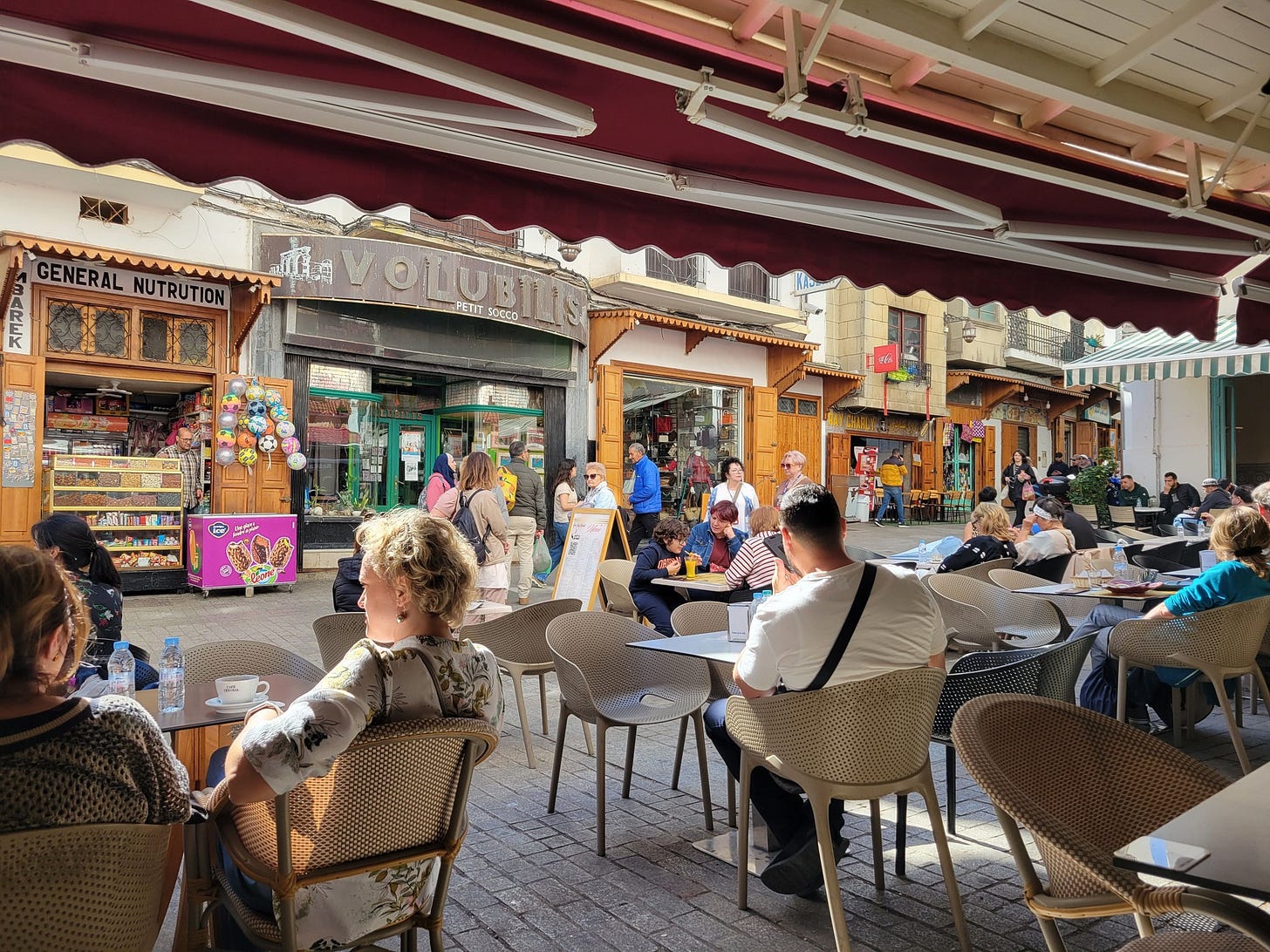How was I treated as an American travelling overseas?
Talking to Syrians, Palestinians, French, Moroccans, German, Dutch, Croatians, Russians and British.

“How bad was it being an American?”
This is the FIRST thing most people ask me now that I am back in the US for a while.
I just spent seven months living in France (Paris and Perigueux) and in Tangier, Morocco.
“Were people mean?” Did you have to keep a low profile?”
The truth is, I barely noticed.
Was I surprsided? A little.
For background: I talk to a lot of people. A LOT. It’s the way I travel.
I talk to taxi drivers, uber drivers, waiters, hostel workers, fellow travelers, people in cafes, shop owners, clerks.
I made lifelong friends in Tangier who introduced me to their friends, invited me to their parties and their homes.
I made friends with my Palestinian Uber driver, Numan (he is awesome…hit me up for his contact info if you go to Tangier and need a driver).
I dated a Parisian man who introduced me to his friends.
Not one person said anything rude or negative toward me or snubbed me.
Quite the opposite.
One store owner in Tangier said Americans were some of his favorite people.
Here’s the thing: Most people don’t associate an individual with their government. They understand people are unique and are not the same as their government.
The only place I have been that does not seem to understand this is the good ‘ol USA.
Top things people said to me after telling them I was from the US:
WELCOME to Tangier! (Morocco).
Are you from Los Angeles? New York?
I (or my brother, cousin, daughter) have been to the US!
Bonjour. You speak French well?! (Paris, Dordogne)
Most Americans don’t speak French. How did you learn? (France and Morocco)
What is happening in the US? Why is it so crazy there? (Both before and after the last election.)
Nothing at all or “how long are you visiting?” Just normal talk. This should actually be #1. Being American is just not mentioned.
What do you think about Trump? What is he going to do? (maybe 15 percent of the people).
Visibly pleased to meet an American and want to talk about what they know, where they have been and ask me about where I am from.
And the kicker was this: people whose lives have true horrors, current and past, did not even flinch when I said I was from a country perpetrating those horrors.
I feel I should repeat this because it was so impactful to me:
Even though my government is arguably directly responsible for killing their families, destroying their businesses, forcing them to separate from loved ones…they didn’t care about that in relating to me.
Here are the people and what we said:
I was in Tangier when Syria became “liberated” and while massacres were happening in Gaza.
I became close friends with people who fled Syria years earlier and moved to Morocco. They lost family members, homes, generational businesses.
They tell me I am family now.
I was introduced to Palestinians from these friends.
The first time my friend introduced me to a Palestinian, I felt obligated to say that I was sorry for my government.
I actually said these words to him, “I’m sorry for the actions of my government.”
He totally blew it off.
Like it didn’t even make sense to say this.
And that really struck me. Because my government was responsible for killing his family and friends.
And my government was arguably complicit in killing the families and friends of my wonderful Syrian friends, and responsible for them losing their generational homes and businesses.
These are horrors.
And these people did not even register that I was connected with that.
Because they realize that I am not connected with that.
Nor are you.
They realize governments create war and normal people are not responsible for war.
In my opinion, this is common sense. A kind of common sense of humanity that is getting lost in my home country.
The most common thing we said and agreed on was this:
Nobody wants war. Real people do not want war. Governments (elites) wage war. We are not that.
I have thought about this a lot. I was treated like family from my close friends in Morocco. And like a long time community member by neighbors in Tangier.
No questions asked.
In France the people are more reserved, yet after I talk with them, they often open up and we have great conversations. My American friend and I were invited out for drinks and tapas by a group of locals after an Ecstatic Dance class, for example.
They asked us about the US and we discussed politics with no animosity. This happened to me many time: reasonable discussions about politics with no tension.
My 84 year-old American friend amassed a minor harem of French women helping him in the 10 days he was there, and he speaks no French at all. Of course he is a charmer :)
So, how was I treated as an American?
I was not. I was treated as a human.
And you will be, too.
(Unless you are an a@#hole. I can’t do anything about that :)




Your reporting here is so beautiful. I appreciate the way you travel and connect with people, sharing as human to human. Thank you.